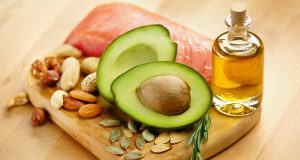You may think that managing diabetes is basic: don’t eat sugar, exercise, take your medication… sound familiar?
The road to health can be tricky, however. Diabetics may think they are doing their blood sugar a favor, but some “healthy habits” actually raise blood sugar instead of lowering it.
- “Sugar-free” foods
One section of the health food aisle of the local supermarket is likely full of “sugar-free” foods. These foods may not contain refined white sugar, but contain extra preservatives, additives, and artificial sugars instead.
Use artificial sweeteners with caution. Science is now showing us that artificial sweeteners could be just as harmful to the body as real sugar, including elevation of blood sugar. Heck, some artificial sweeteners literally destroy your body from the inside out on a cellular level. Aspartame, anyone? Sucralose, saccharin, and acesulfame are all names for artificial sugar and can wreak havoc in the body.
- Fad Diets & Skipping Meals
Don’t fall for fads. While the “lose 20 pounds in a week with the XYZ diet” may sound appealing, don’t trust it. As with most things, if it sounds too good to be true, it probably isn’t true.
Do not skip meals and allow yourself to go hungry. Not only will you increase your likelihood of settling for an unhealthy food choice, you are also devastating your blood sugar. It is important to keep blood sugar stable, especially for diabetics. When you skip a meal, your blood sugar will drop. As soon as you put the first bite of anything in your mouth, your sugar will rise.
If what you put in your mouth contains sugar (real or artificial) your blood sugar will skyrocket. This can be very dangerous, and can have a lasting impact on your health. A general consensus from experts is to eat every three to five hours. This keeps your metabolism running, keeps blood sugar more stable, and prevents you from getting irritable due to hunger.
The healthiest way to go is to eat right, get moving, and take it slow. While the results may not be immediate, they will be worth it.
Think of this journey as a marathon instead of a sprint. You are more likely to succeed long-term if you start slow. Try adding 15 minutes of physical activity per day, or not indulging in your daily after-dinner treat. Make two new goals per week, meet them, and then build on them.
- Drinking juice
Be wary of fruit juice blends, mixes, and concentrates. Most store-bought fruit juices are actually just fruit-flavored beverages. They contain a very small amount of actual fruit juice, and are mostly made up of sugar and preservatives, with most having between 20-30 grams of sugar per cup.
Look for labels that state “100% unsweetened juice.” If you really have a passion for fresh juice, invest in a juicer. That way you can enjoy fresh fruit (and vegetable) juices at home without added sugar.
Whole fruits contain vitamins, minerals, and fiber and are an important part of a healthy, balanced diet. Because fruits also contain natural sugars and carbohydrates, it is important to choose fruits that will have a more positive impact on blood sugar. Apples and blueberries are two great choices. Blueberries are a superfood and will raise blood sugar less than an orange or pineapple. Apples are a great source of fiber (make sure to enjoy with the skin on) which helps to slow the absorption of sugar into the bloodstream.
- Drinking diet soda
It has no sugar and no calories – I can have diet soda! Not so fast. Research has shown that individuals who drink diet soda consume more calories than those who do not. Why? Because people think that they can eat more calories simply because they are not “drinking” calories. Not only does the artificial sugar in diet soda cause health problems, it can still raise blood sugar, and increases likelihood of obesity.
Instead of sweetened beverages like sodas, processed fruit juices, teas, and energy drinks, choose water. The human body literally cannot function without water. You will notice a huge in difference in how you feel on a daily basis, along with an improvement in your blood sugar.
- Relying on vitamins and supplements
Vitamins and supplements can be helpful for those that are not getting adequate nutrition from their diets. There is nothing wrong with taking a vitamin or supplement (as long as it’s cleared by your doctor), but the best vitamins, minerals, omega-3’s, and fiber come from food! Making healthy food choices gets you an overwhelming majority of the nutrition your body needs.
- Avoiding high-fat foods
Research has shown that by eating a diet rich in good fats, you can actually lower your risk of obesity, heart disease, diabetes, and high cholesterol. According to several studies, it is not the amount of fat you eat that affects health, it is the type of fat.
There are several different types of fats, each found in a variety of foods. Some are better choices than others in terms of good health.
Monounsaturated and polyunsaturated fatty acids are two “good fats.” These fats have been found to lower cholesterol and blood pressure levels, therefore, reducing risk of heart disease.
Monounsaturated fats can be found in a variety of nuts, as well as in avocado, peanut butter, and olive oil. Polyunsaturated fats, also known as omega-3 fatty acids, can be found in walnuts, and in fish like salmon and mackerel.
There is one truly “bad fat” and that is Trans fat. Research has found that trans fats are the ones that raise bad cholesterol and lower good cholesterol. This combination increases risk of heart attack and stroke.
Trans fat is found in fried foods and packaged foods. If you see the word hydrogenated on the product’s label – choose another item. Hydrogenated is another word for trans fat. Not to mention the fact that fried and packaged foods are often full of calories, with little to no nutritional value. “Low-fat” packaged foods have also been a huge contributor to the diabetes epidemic in the U.S.
Did you know that when there is less fat in a product, there is usually more sugar? Fat tastes good! When processors remove the fat from a product, they replace it with sugar. For example, full-fat yogurt contains approximately 11 grams of carbohydrates/sugar per serving. Low-fat yogurt contains upwards of 17 grams of carbohydrates/sugar. That’s a 50% increase in sugar content!
If we continue to learn, to hold ourselves accountable, and keep on keepin’ on, we cannot just manage diabetes, we may manage to heal it!
Sources:
http://www.webmd.com/diabetes/blood-sugar-coach-17/diabetes-plan/diabetes-habits-to-quit
 Diabetic Kitchen
Diabetic Kitchen





Recent Comments